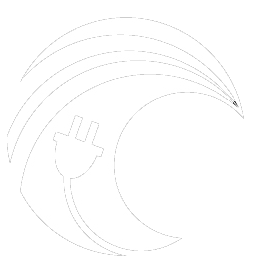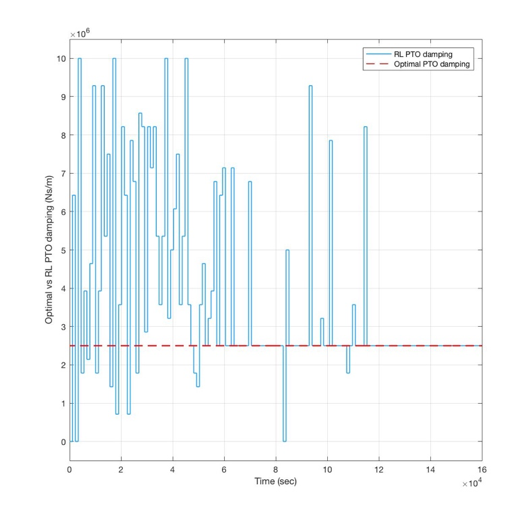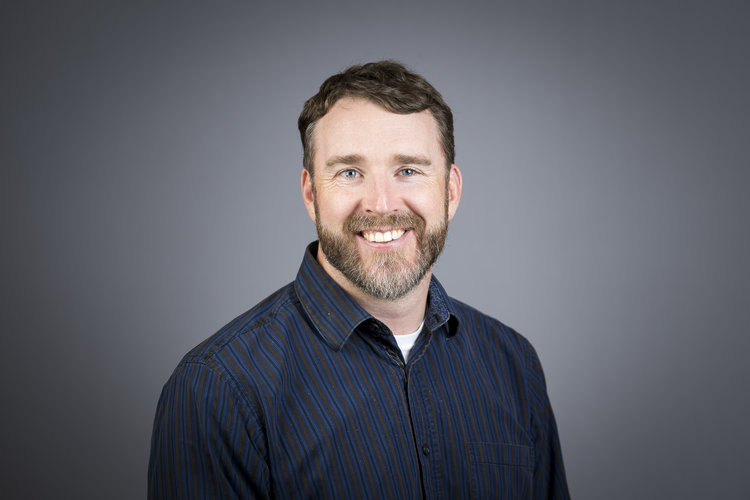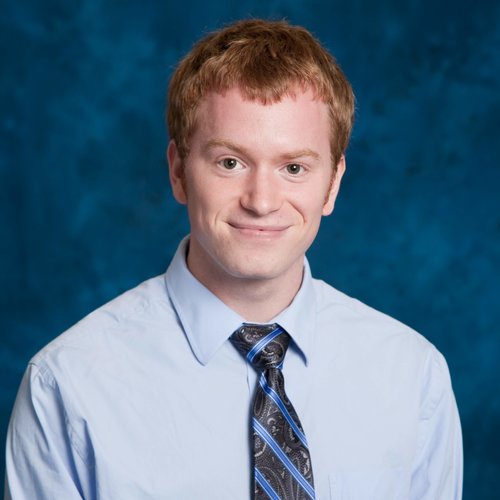Project Motivation:
Because wave energy conditions are widely variable, an optimized wave energy converter's (WEC) control system would be able to instantaneously adjust to marine conditions to increase power capture and improve survivability. But non-linear WEC control approaches that integrate advanced logic and machine learning approaches need further development and testing to be viable for commercial use.
Summary:
A PMEC team selected two main non-linear wave energy approaches for R&D effort: fuzzy control and reinforcement learning.
A fuzzy logic control system improves on binary control systems, allowing partial values and a higher level of variability.
A plot showing fuzzy augmented control limiting wave energy converter motion to not exceed 0.6 m.
A reinforcement learning system uses machine learning where the system trains and improves towards behaving optimally based on positive results in various conditions.
A plot showing the reinforcement learning algorithm determining WEC optimal damping during online training.
Read more details on non-linear WEC control systems in the PMEC research highlights.
Current Results:
Both approaches are being coded and tested and will be added to the Department of Energy’s open source WEC modeling suite, WEC-Sim. From WEC-Sim they can be freely downloaded for testing on any device.
Research Team:
More information:
L. Ghorban Zadeh, D. Glennon, T.K.A. Brekken, “Q-NN Learning Control Strategy for a Two Body Point Absorber Wave Energy Converter,” submitted to IEEE ECCE 2019
D. Glennon, L. Ghorban Zadeh, T.K.A. Brekken, “Fuzzy Control for Over-Travel Protection of a Wave Energy Converter,” submitted to IEEE ECCE 2019
Nonlinear Control for Wave Energy Converters: getting the power we want, when we want it - PMEC Research Blog
Sponsor:
This research is part of the Advanced Laboratory and Field Arrays (ALFA) for Marine Energy Project Task 11, a multi-year project with participating members at all institutions affiliated with PMEC as well as multiple U.S. Department of Energy national labs.
Last updated: July 8, 2019







